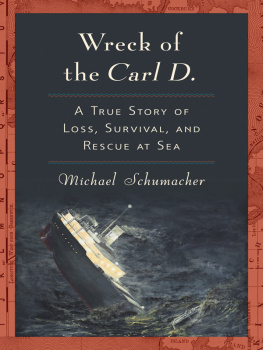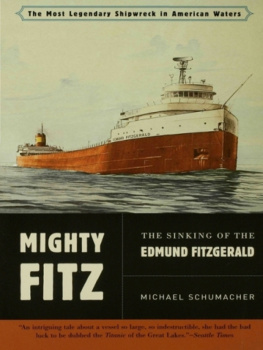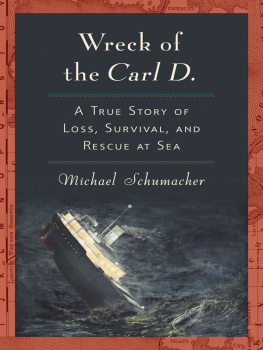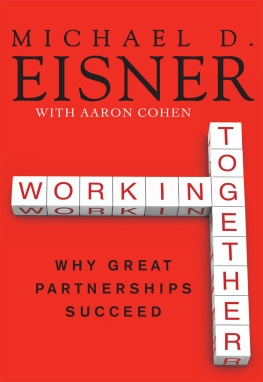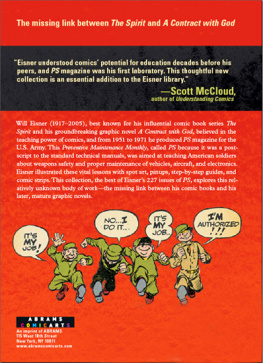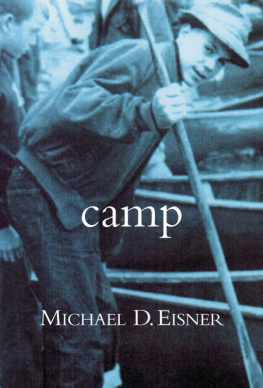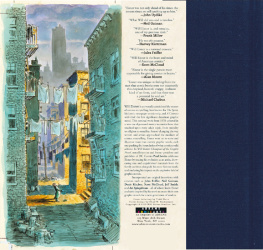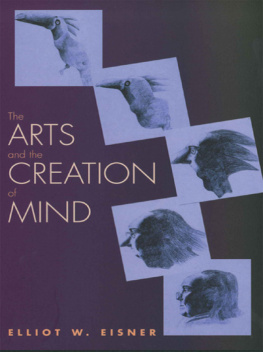BY THE SAME AUTHOR
Reasons to Believe: New Voices in American Fiction
Creative Conversations: The Writers Complete Guide to Conducting Interviews
Dharma Lion: A Critical Biography of Allen Ginsberg
Crossroads: The Life and Music of Eric Clapton
There but for Fortune: The Life of Phil Ochs
Francis Ford Coppola: A Filmmakers Life
Family Business: Selected Letters Between a Father and Son,
by Allen and Louis Ginsberg (editor)
Mighty Fitz: The Sinking of the Edmund Fitzgerald
Mr. Basketball: George Mikan, the Minneapolis Lakers,
and the Birth of the NBA
Wreck of the Carl D.: A True Story of Loss, Survival, and Rescue at Sea
W I L L E I S N E R
A Dreamers Life in Comics
M i c h a e l S c h u m a c h e r

Copyright 2010 by Michael Schumacher
All rights reserved. No part of this book may be used or reproduced in any manner whatsoever without written permission from the publisher except in the case of brief quotations embodied in critical articles or reviews. For information address Bloomsbury USA, 175 Fifth Avenue, New York, NY 10010.
Published by Bloomsbury USA, New York
LIBRARY OF CONGRESS CATALOGING-IN-PUBLICATION DATA
Schumacher, Michael.
Will Eisner : a dreamers life in comics / Michael Schumacher.
p. cm.
Includes bibliographical references and index.
ISBN 978-1-60819-013-3 (hardcover)
1. Eisner, Will. 2. CartoonistsUnited StatesBiography. I. Title.
PN6727.E4Z78 2010
741.5'6973dc22
[B]
2010011283
First published by Bloomsbury USA in 2010
This e-book edition published in 2010
E-book ISBN: 978-1-60819-524-4
www.bloomsburyusa.com
T o I v y a n d D y l a n
w h o s e d r e a m s I c a n t r e m e m b e r o r i m a g i n e
I wasnt aware that I was making a revolution. I knew what I was
doing was different because I meant it to be different, and I was talking
to a totally different reader.
Will Eisner
We used to feel very much like a Mama Rabbit and a Daddy Rabbit,
who were running around, being chased by a bunch of dogs. They
dove into a hole and the Mama Rabbit is quivering. Shes saying,
Oh, this is terrible. Were doomed. The Daddy Rabbit says, No,
dont worry about it. Well stay here, and in a half an hour, well
outnumber them. I always think of that when people ask me how
I felt about all those years of so-called struggle.
Will Eisner
C O N T E N T S
Chapter 1
Chapter 2
Chapter 3
Chapter 4
Chapter 5
Chapter 6
Chapter 7
Chapter 8
Chapter 9
Chapter 10
Chapter 11
Chapter 12
Chapter 13
Chapter 14
Chapter 15
Chapter 16
chapter one
I carry with me a cargo of memories, some painful and some pleasant,
which have remained locked in the hold of my mind. I have an ancient
mariners need to share my accumulation of experience and observations.
Call me, if you will, a graphic witness reporting on life, death,
heartbreak and the never-ending struggle to prevail
or at least to survive.
W ill Eisner boasted that he could draw the New York City of his childhood from memory, that he didnt have to consult old photographs or conduct research to conjure up images of towering tenement buildings with their wrought-iron fire escapes and broken front stoops, of clothes hanging on lines cast between buildings, of fire hydrants and subway grates, of endless rows of grimy windows, of kids playing stickball in the street and their parents engaged in the mighty struggle of stretching a few last dollars from Tuesday to Friday, hollering their frustrations at one another or, if the moment was right and the shades were drawn, slipping into tenderness offering reassurance, if not promise. To the New Yorker growing up in Depression-era Bronx or Brooklyn, as Eisner did, the neighborhoods, packed tight with immigrants and buildings and shifty politics, were places to survive until hope began to make sense. Eisners graphic novels caught all this and more, often in tenement buildings on the fictitious Dropsie Avenue, where Eisners memories gathered and, in the solitude of a drawing board, took flight.
The city, to me, is a big theater, he once said. Its a never-ending source of story, largely because theres a concentration of human beings who are impacting on each other. And each human carries with him, or her, a whole story. Its a struggle for existence.
Eisner was always the outsider. His family moved frequently, usually as the result of his fathers inability to pay rent and make ends meet, so as the perpetual new kid on the block, he was continually the observer, again and again learning the lay of the land, guarding his younger brother and sister, dealing with these lower-middle-class neighborhoods anti-Semitism, finding a way to fit insurviving. And, too soon, at an age when other boys were trying out the fit of adolescence, he became the unofficial head of the household, the provider. His childhood was over and his city shrank.
Born on March 6, 1886, Shmuel (Samuel) Eisner, Will Eisners father, was an old world artist and intellectual who learned, during the bleak days of the Depression, that neither art nor intellectualism could buy you a half a loaf of bread or a few eggs at the corner store. Sam Eisners perfect world was Viennese caf society: fine art painting, intelligent conversation, literature, friends, and endless cups of strong coffee. And, yes, watching his children grow into healthy, happy adults. Life was enrichment of the mind, and joy was finding a creative way to express that enrichment.
His real world bore little resemblance to this. He was born in Austria, in Kollmei, a village not far from Vienna. His father, a laborera kerosene miner or something like that, as Will Eisner would recallhad all he could handle in feeding his wife and eleven children.
Although he never formally studied art, Sam was a natural painter, gifted with backgrounds and landscapes, enough so that when he moved to Vienna as a teenager, he was able to find a job as a muralists apprentice. Wealthy patrons hired him to paint scenes on the walls of their homes, or more often Sam would find himself decorating the walls and ceilings of Viennas Roman Catholic churches. This irony, of a thirteen- or fourteen-year-old Jewish boy painting blue skies and fluffy clouds and rosy-faced singing cherubim in a Catholic church, would amuse his son for his entire adult life.
One by one, Sams brothers and sisters moved away, some to other cities in Europe, others overseas to America, where they established residence, found work, and sent for other siblings. Rather than face enlistment in the army, Sam left Vienna for the United States, arriving in New York just before the outbreak of World War I. If he envisioned America as a land brimming with opportunity and potential wealth, that notion was quickly put to rest. Sam knew how to speak German and Yiddish, but not English, and he learned early on that job hunting was going to be challenging: there was very little demand for alfresco painters in New York City. He eventually landed a job as a background painter for stages in Yiddish and vaudeville theatersa far cry from the kind of art he aspired to create and earning him barely enough to get by. Like many immigrants, he attended night school to learn English, but it was tedious and the language came slowly to him. Fortunately, though, he was gregarious and charming by nature, and he made friends easily.
Perhaps it was this charm, and particularly his ability to tell a good story, that attracted Fannie Ingber to him, for it is otherwise difficult to imagine what brought together this most unlikely couple. Fannie, a Romanian, had been born on April 25, 1891, on a ship bound for America. Her father, Isaac, seventy at the time of her birth, had been married to Fannies mothers older sister, and when she died of influenza, hed returned to his homeland for another wife. Fannies mother, a sickly woman, died on Fannies tenth birthday, and Isaac Ingber died later that same year, leaving Fannie in the custody of an older stepsister, Rose, who treated her more like a slave than family. Besides being overloaded with household chores, Fannie helped Rose do piecework for a garment factory and looked after her younger brother and sister. She found very little time or use for enjoying friends, hobbies, or the big city around her. When she grew older, she dated a few young men, but none of them met with the approval of her stepsister, who in all likelihood was more concerned about losing a servant than gaining a brother-in-law.
Next page

